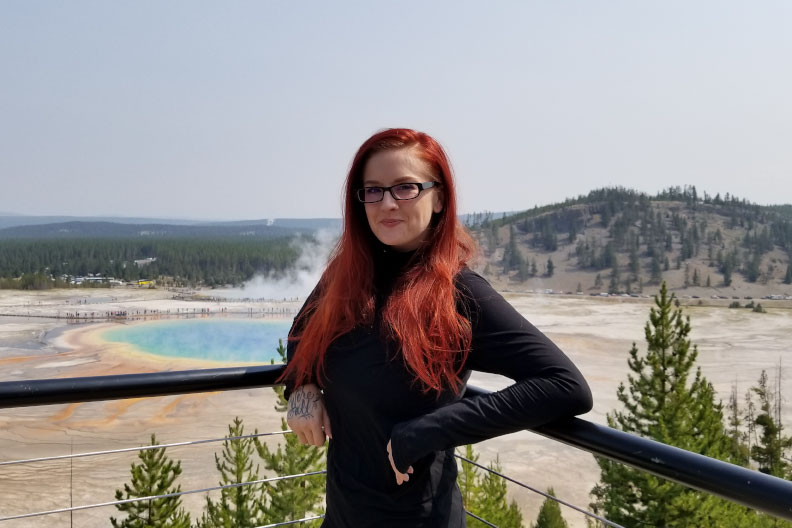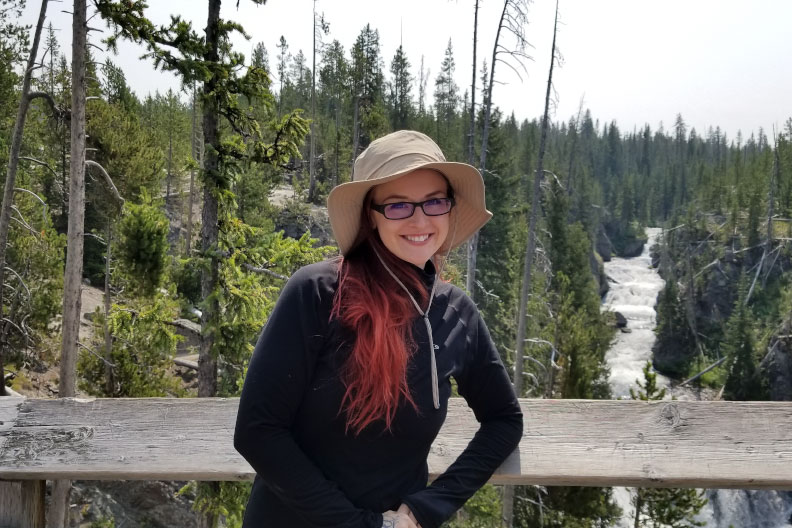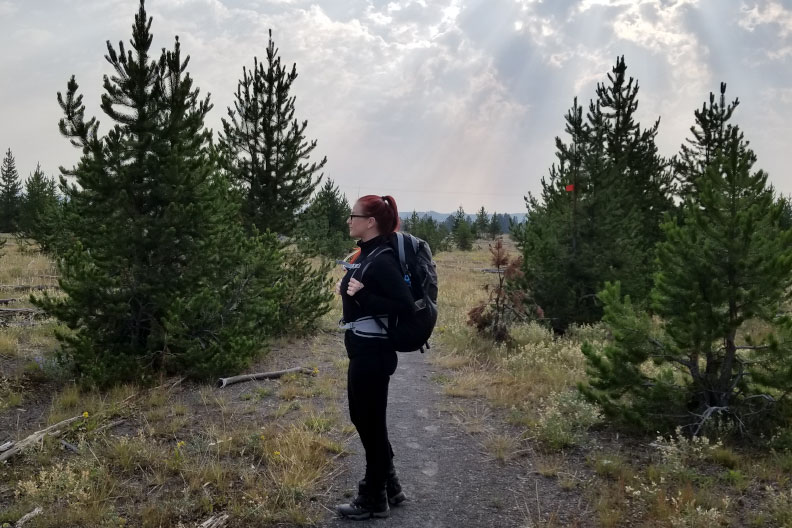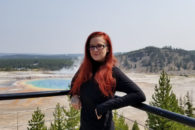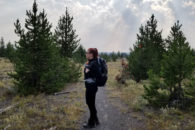Probing Yellowstone’s Microbial Life
Bio major studies why organisms thrive in harsh geothermal environment
The famed hot springs of Yellowstone National Park provide a unique laboratory for the study of microorganisms. “They thrive in conditions uninhabitable to many organisms,” said Sarina Mitchell ’19. She is doing fieldwork at the park with biology professor Dr. Tamara Marsh for the second consecutive summer.
These microorganisms are descended from the planet’s first single-celled organisms, Marsh said, and may help us understand how life evolved on Earth. They also provide clues to what might be possible elsewhere in the universe. These bacteria also may have a function in remediating environmental pollutants, Mitchell added.
A biology major from Wheaton, Mitchell is studying the microbial communities of Yellowstone under the Creative and Scholarly Endeavors (CASE) program through a grant from the Arthur Vining Davis Foundations. CASE fellows work on a scholarly or creative project under the supervision of a faculty mentor; juniors and seniors earn a stipend of $3,000. She began working with Marsh last year and traveled to the park last summer under different study grants.
Gathering samples from the park (Permit number #YELL-05866), starts early in the morning and is an all-day affair. This year Marsh’s team plans to analyze the biomat, a layer in the soil where microbes are arranged in distinct layers. “Why are they there in that order?” Marsh wants to know. Specimens are shipped back to Elmhurst in a heated container.
Before she took off for Yellowstone, Mitchell was analyzing last summer’s samples, measuring metabolism and other properties. Next year she plans to apply to graduate school to continue her studies of microorganisms that live in extreme environments, appropriately called extremophiles.
